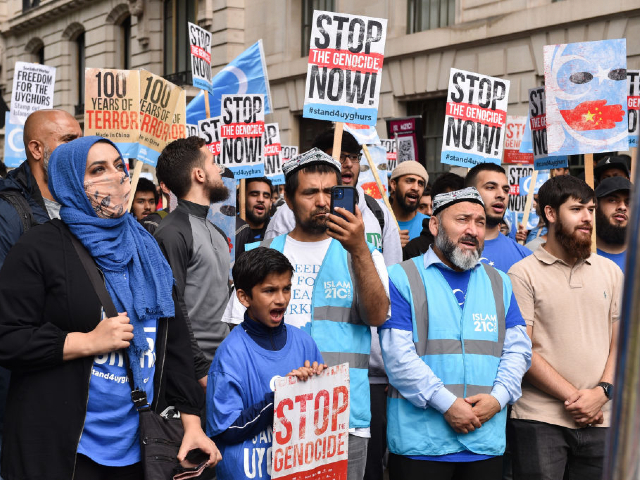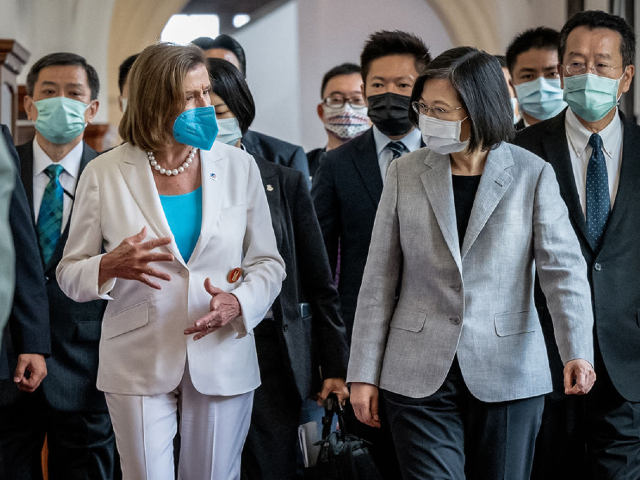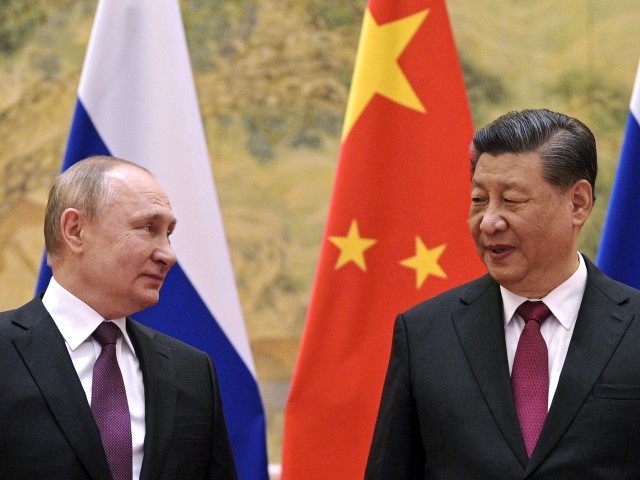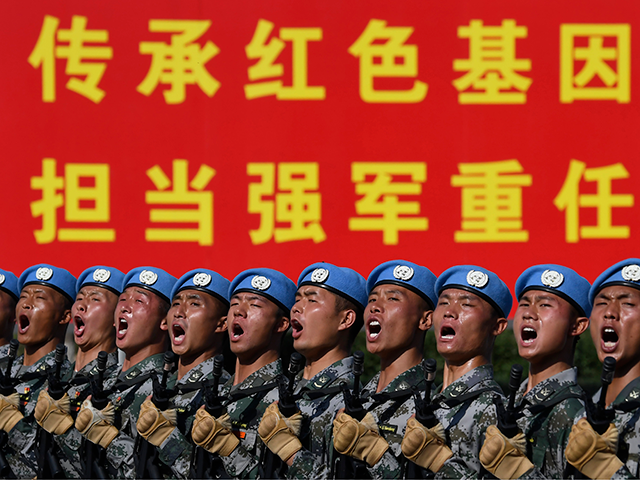The Pew Research Center on Wednesday released a poll showing that most American voters are not terribly concerned about Chinese dictator Xi Jinping effectively securing life in power with an unprecedented third term, but they do see Communist China as a problem from various angles, including its human rights abuses and the threat it poses to democratic Taiwan.
“Only three-in-ten Americans say it is a very serious problem for the United States if Xi assumes a third term as China’s leader. Larger shares express concern about the other issues asked about in the survey, which was conducted Oct. 10-16 among 5,098 U.S. adults,” Pew observed.
More specifically, respondents were worried about the partnership between authoritarian China and Russia (a very or somewhat serious concern for 87 percent of respondents); China’s growing military power (86 percent); tensions between China and Taiwan (82 percent); economic competition from China (82 percent); and China’s human rights abuses (80 percent).
In terms of intensity, concerns about China partnering with Russia and increasing its military power were most urgent, with 57 percent and 50 percent of respondents rating those issues “very serious,” respectively.
Fears about tensions with Taiwan, China’s military expansion, and economic competition demonstrated the sharpest growth trends since Pew’s last poll in March. The number of respondents who said China’s menace to Taiwan was a “very serious” concern grew by eight points, for example.

Uyghurs and UK Muslim organizations gathered opposite the Chinese embassy in London to protest against the Chinese government’s involvement in ongoing human rights abuses against Uyghurs and other ethnic minorities. (Thomas Krych/SOPA Images/LightRocket via Getty Images)
Pew attributed some of the bump in this particular anxiety to the ratcheting of tensions after House Speaker Nancy Pelosi visited Taiwan in August. Pew similarly theorized the much-reported passage of the CHIPS and Science Act, a law intended to protect the U.S. electronic industry from predatory Chinese practices, may have focused the public mind on economic competition with China.

Speaker of the U.S. House Of Representatives Nancy Pelosi (D-CA), center left, speaks Taiwan’s President Tsai Ing-wen, center right, after arriving at the president’s office on August 03, 2022 in Taipei, Taiwan. (Chien Chih-Hung/Office of The President via Getty Images)
On the other hand, concern about Russia partnering with China actually slipped a little since March. Pew noted the previous poll was taken soon after the Russian invasion of Ukraine began.

Chinese President Xi Jinping, right, and Russian President Vladimir Putin talk to each other during their meeting in Beijing, China, Friday, Feb. 4, 2022. (Alexei Druzhinin, Sputnik, Kremlin Pool Photo via AP)
Generally speaking, Pew found older respondents and Republicans more likely to be concerned about various China issues, with the exception of human rights abuses, which exhibited a smaller age gap and polled about evenly between Republicans and Democrats. Self-identified conservative Republicans were more likely to be concerned about Taiwan than other groups, although most demographics agreed American officials should not be intimidated out of making diplomatic visits to Taiwan.
One interesting twist on Taiwan was that conservative Republicans and liberal Democrats were almost equal in their support for sending high-level American officials to visit Taiwan, while moderates from both parties were almost identically cool to the idea. Strong liberal Democrat support could, of course, have been goosed by partisan support for Pelosi’s visit.
Gallup also detected a pronounced shift in Americans’ attitudes toward China when it ran a poll in March, around the same time as the previous Pew poll. Gallup found the number of Americans who viewed China as their “greatest enemy” more than doubled over the preceding year, even as the Wuhan coronavirus pandemic was receding. Poll analysts suspected the economic damage inflicted to the Western world by the coronavirus could have made the public more conscious of China’s economic power and aggression.
Reviewing the Pew poll results on Thursday, Focus Taiwan noted Americans seemed more urgently concerned by China’s belligerent behavior after Pelosi’s visit than the Taiwanese. Surveys taken in late August showed up to 78 percent of Taiwanese were “not worried” about the heavy live-fire drills China staged around Taiwan after Pelosi’s visit.
President Joe Biden is far out of step with the American public’s opinion of China. He has insisted “China is not our enemy” for decades:
A tireless supporter of greater economic engagement with the Chinese Communist government for much of his political career, he penned a New York Times op-ed in 2011 in which he declared himself convinced “a successful China can make our country more prosperous, not less.”
In his 2020 presidential campaign, Biden mocked those who saw Beijing as a threat, or even serious competition. “China is going to eat our lunch? Come on, man,” he scoffed at a campaign event in Iowa City.
“I mean, you know, they’re not bad folks, folks. But guess what? They’re not competition for us,” Biden continued, speaking long after China’s horrific concentration camps for the Uyghur Muslims had been exposed to the world.

COMMENTS
Please let us know if you're having issues with commenting.